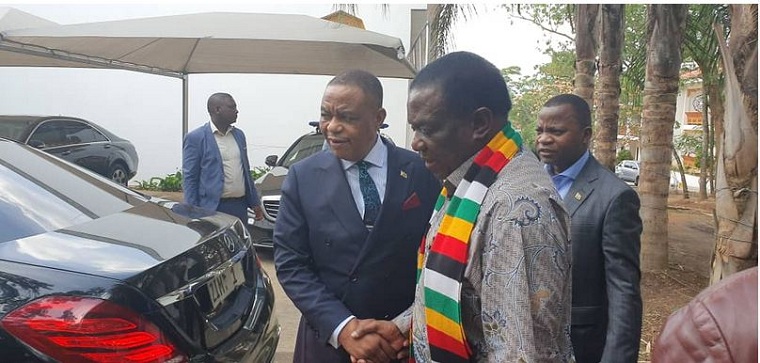Each country’s rumour mill is different, of course, reflecting its own history and sense of who has privileged access to information. The Zimbabwean version is most often preoccupied with the circumstances surrounding real or alleged deaths of politicians. On July 29, it was claimed that Minister Kazembe Kazembe had been in a fatal car accident, complete with pictures from the scene – until the minister appeared at a media briefing an hour later. This rumour was believable because high-profile figures seem to be involved in car accidents at alarming rates – such as the recent non-fatal accident of the first lady, Auxilia Mnangagwa.
So robust and commonplace is Zimbabwe’s rumour mill that a novel was written about elite intrigue, political murder and the ripples of rumour in Harare. The Death of Rex Nhongo is set in 2011, just before the controversial real-life death of General Solomon Mujuru, and tells the story of characters who find themselves tangentially affected by the elite politics at play. When it was released, the book – written under the pseudonym CB George – triggered its own set of rumours, as people speculated about who might have written it.
One reason that rumours are important is that they tell us what a lot of people are thinking. That the Zimbabwean rumour mill is preoccupied with stories of coups and back-room deals speaks to an important truth about the country’s politics: President Mnangagwa is widely seen to be in trouble. Unable to deliver on his promise of a stronger economy, unpopular with his people due to his history of violent repression, and in debt to the military that propelled him to power, Mnangagwa finds himself between a rock and a hard place. The more Zimbabweans protest against the regime, the weaker the president’s legitimacy becomes. Against this backdrop it is easy to see why so many Zimbabwean Twitterati and WhatsAppers assume that the man known as The Crocodile is living on borrowed time.
The rumours also reveal a more subtle point about the changing nature of power in the country: Mnangagwa appears to not be fully in charge. The constant discussion of a coup is rooted in an assumption that it is the military, not the – nominally – civilian president that determines the most important aspects of government policy. While Robert Mugabe was a dominant political force right up until his very final years in power, the central role played by senior military figures in paving the way for Mnangagwa has given them a much more powerful seat at the table.
There have been higher numbers of military appointments to the Cabinet, and greater involvement of serving and retired officers in government contracts. More bizarrely, in the midst of a global and local health crisis the country’s most senior army general and vice-president, Constantine Chiwenga, has just been appointed minister of health.
Rumours also matter because when they are believed they can change what people think and do. Paranoid leaders hearing a rumour of a coup attempt to purge those they suspect of being disloyal. Opposition leaders used to being harassed and intimidated may flee into exile if they hear that the security forces are about to detain them. Often, in the aftermath of a crisis, the fact that a leader initiated a purge, or that an opposition leader fled, may be taken as evidence that a coup or arrest was planned by journalists and academics, shaping the historical record. In this way, rumours can change the world, and lies can become fact.
This can be seen from recent events in Zimbabwe. Given that the military came out to publicly deny rumours of a coup in June, elements of the ruling party were accused by the country’s spies of planning to remove Mnangagwa, and that rumours swirled that the military was funding and supporting the planned July 31 protests, it is easy to see why Mnangagwa would be feeling uneasy. This almost certainly contributed to the heavy-handed crackdown meted out to journalists, activists and a globally recognised author recently long-listed for the Booker prize (Tsitsi Dangaremba).
In this way, rumours can both have a profound impact on real world events, and provide important insights into changing political dynamics. So, while it would be unwise to stay at your desk for days on end waiting for a coup that may never come, it is always worth listening to rumours.
By Nicole Beardsworth and Nic Cheeseman for the Mail and Guardian
(284 VIEWS)


